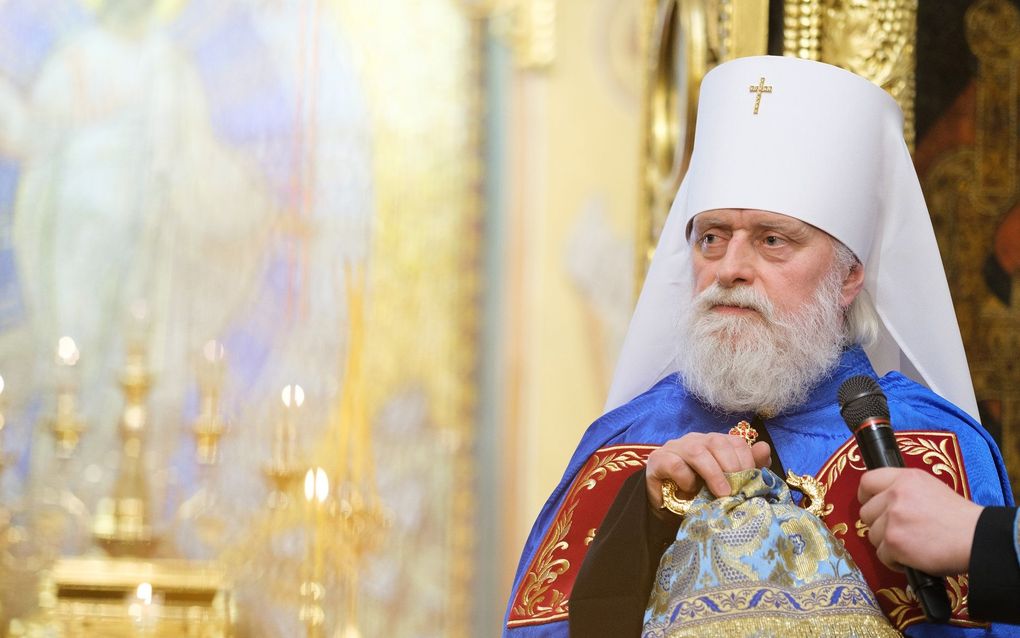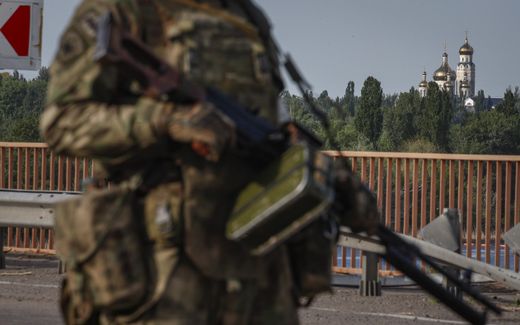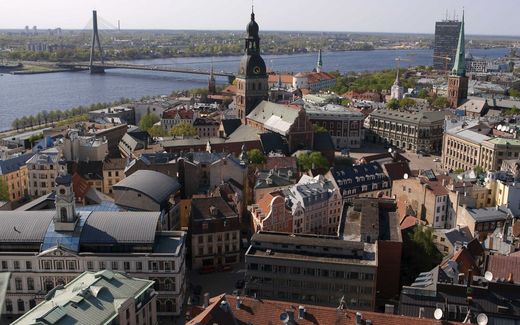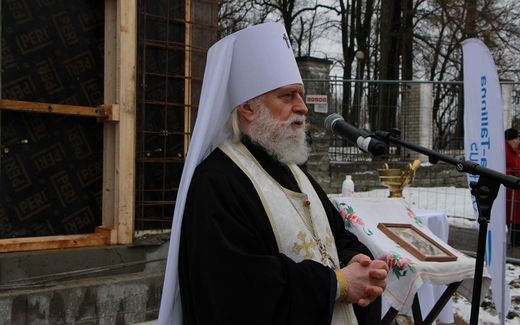Estonian Metropolitan distances himself from Kirill after political pressure

Metropolitan Yevgeny from the Russian Orthodox Church in Estonia. Photo Wikimedia Commons
Eastern Europe
Estonia’s Minister of Internal Affairs has demanded that the Estonian Orthodox Church (EOC) disavow the Russian Patriarchate’s comments or risk getting denied special privileges.
In reaction, Metropolitan Yevgeny, head of the Russian Orthodox Church in Estonia, complied and released a statement that condemns Kirill’s stance on Russia’s actions, according to an ERR article. The Metropolitan says that he still goes in accordance with Estonian regulations and Eastern Orthodox teachings in denouncing the Ukraine war. The EOC is considered an independent church that operates within the jurisdiction of Moscow’s ROC. He stated in a 19 March address:
“At the very beginning of the war in Ukraine, I called on my church members not to submit to feelings of enmity and hatred, not to be drawn into political disputes, especially in the church environment, but to deal with helping refugees who have been left without shelter and without means of livelihood”.
Pleased
Minister of Internal Affairs, Lauri Läänemets, says that he is pleased with the final decision of the Metropolitan.
“With this, the Estonian Orthodox Church is actually backing away from the words of the Russian Patriarch Kirill, where he essentially said that [Russian leader Vladimir] Putin is the holy of holies, that the war in Ukraine is holy and by so doing essentially gave it his blessing,” he said in the ERR report.
Previously, the Minister gave the Metropolitan until 12 October to comment on the issue, according to the Institute of Religion and Policy (IRP). Kirill has previously said that “Russian soldiers are fulfilling their calling and duty to the country and society” and that dead Russian soldiers will be cleansed from their sins. If no response was received, then he would proceed to revoke Metropolitan Yevgeny’s status as a permanent resident.
“We must be sure that not a single organisation, including religious ones, on the territory of the Republic of Estonia will support the war. They must all distance themselves from any incitements to war. If they do not do so, then this means they have an opposite position, and no Estonian organisation can have an opposite position. This is directly a security issue,” Läänemets said regarding Yevgeny in the IRP article.
Condemnation
Despite conflicting reports on the EOC’s position, an Interfax article reported that the EOC has condemned “Russia’s special military operation,” but it had not provided a “political assessment of the events.”
“There are accusations against our Estonian Orthodox Church, as if it calls for the continuation of the conflict and for violence, although there has not been and could not be anything like this during the entire time of the war. Our Church opposes any wars, she is for peace and for the peaceful resolution of any conflicts,” the EOC said in the report.
As in the case of Russia’s position on the EOC, Moscow’s Patriarch Kirill says that all heads in the EOC have been taught the importance of “maintaining unity” within their church. Kirill recently sent his greetings to Metropolitan Yevgeny on his 65th birthday, which became an opportunity to highlight their special relationship.
“Now you are doing a difficult work of primacy on Estonian soil and have care for the development of church life, teach the clergy and flock to walk the saving path of the gospel commandments and preserve the unity of the spirit in the union of peace (Eph 4:3)” Kirill said, which was quoted in the TASS report.
Russian ties as a threat
The EOC has not been the only one to receive pressure from government officials. CNE previously reported that Latvia’s Cabinet of Ministers have demanded that its Orthodox church (LOC) declare independence from Russia. The LOC is considered an “autonomous structure,” but its Russian ties are seen as a threat to the country’s security.
Related Articles






